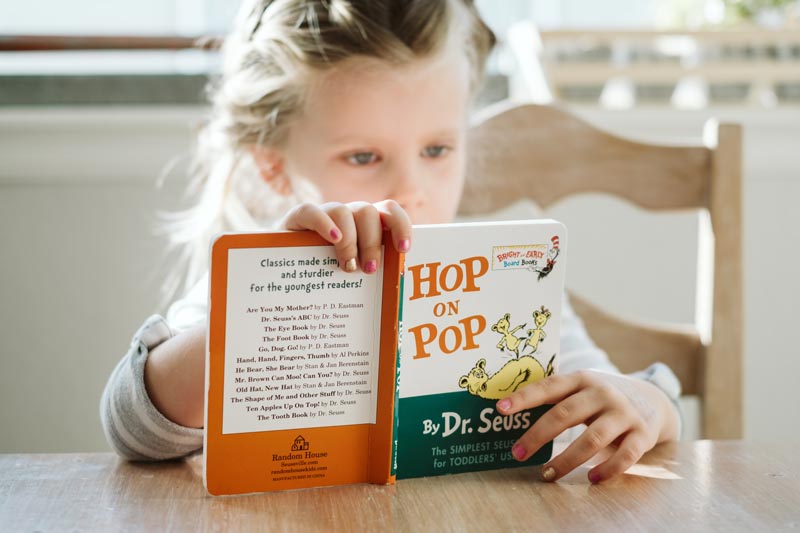Ready to start teaching English online?
Teach with VIPKidSo, you’re interested in having your child learn a foreign language. You might still be on the fence—we hear you, it can seem like a big ask at a young age.
But actually, children have an easier time learning languages than adults. It’s actually just one of the many reasons children should learn a foreign language.
In this article, we’re going to break down how learning a foreign language will help your child succeed in school, work, and beyond.
Let’s dive in!

1. Learning a Foreign Language Lets You Speak to More People
Ok, we get it—this one is a little bit obvious. But it’s also one of the main reasons to learn a foreign language!
When you learn a foreign language as a child, that ability to connect with others is even more natural.
Almost every reason on this list comes back in some way to this. Communicating with more people is a good thing, and it’s something that almost everyone wants to be able to do. Learning a language is arguably the only way to accomplish that. So what are you waiting for?

2. Kids’ Native Language Ability Improves When They Learn a Foreign Language
You might be thinking, “Wait, wouldn’t kids get confused while learning a second language? They probably mix up the languages all the time, right?” Well, think again!
Studies show that children who are learning more than one language actually start reading earlier than their monolingual peers. But that’s not all—that advantage actually grows the earlier a child is exposed to a second language.
And it’s not just reading: some studies show that multilingual students have better grammar and writing skills in their native language at a younger age as well.
It’s time to dispel that age-old rumor about children being confused while learning multiple languages—kids are more capable than we often give them credit for.

3. Childhood Is the Easiest Time to Learn a Foreign Language
We’re often asked how VIPKid teachers can teach English online when few (if any) speak the students’ native language. We like to respond with another question: how did you learn your native language growing up?
The answer is usually something like “I don’t know” or “I just sort of picked it up”, and that’s kind of the point here. Kids are like sponges for language at a young age. They pick this stuff up without even realizing it—it’s part of their natural brain development!
Through the time they’re in 2nd or 3rd grade, children are able to learn multiple languages with the same ease that they learn their native language. After that, it eventually becomes harder and harder to pick up more than one language.
That’s not to say it isn’t doable to learn a language later in life, but childhood is by far the easiest time. Like we just said, kids are more capable than we give them credit for.

4. Language Learning Helps Children’s Brain Development
Children (and adults) who are multilingual have many advantages over those who are monolingual. For example, children who speak more than one language are better at multitasking, focusing, and more.
These advantages can appear at an early stage, too. Even with babies who haven’t turned one yet, those who are in environments with multiple languages show different patterns than babies who are only around one language.
Long story short: do you want your child to develop important skills at a young age? Language learning is the way to go, and VIPKid’s online English learning is here to help!

5. Learning a Language Also Boosts Test Scores in Core Subjects
Want your child to get into their dream school? Have them master a foreign language!
Ok, maybe it’s not quite that simple—there are obviously a lot of factors that go into this sort of thing.
But here’s what we do know: multiple studies show that students who have studied foreign languages perform better in multiple subjects on standardized tests. Multiple studies also show that test scores were higher for students that have studied a foreign language for longer.
So while it’s not as easy as a child snapping their fingers and acing a test, learning a language is proven to help students improve test scores. The data doesn’t lie!

6. Children Who Speak More Than One Language Are Typically More Empathetic
All over the world, society is getting more and more diverse. And along with that diversity comes the need for more empathy—it’s important to understand what different people are going through.
In a study at Cornell University, a group of children were asked to perform a task where they were asked to consider another person’s point of view to help understand their situation. To some surprise the children who had been raised as bilingual performed better on that task than the children who only spoke one language.
But it makes sense, doesn’t it? Multilingual children have often had to consider others’ perspectives in their daily lives—they have to be thoughtful about what languages are spoken in what situation.
This isn’t a one-size-fits-all metric—monolingual children (and adults) can certainly be empathetic too. But it’s just another reason why kids should learn a foreign language. We could always use a little more empathy in the world.

7. Learning a Language Increases Cross-Cultural Understanding
Along with being more empathetic, people who speak multiple languages are more understanding and accepting of different cultures. Language shapes the way that we see the world, and by learning a new one, your child will practically be looking at the world through a different set of eyes.
Understanding a language can also give us better insight into different parts of a culture—your child will be able to learn and understand what makes us different and what we have in common.
By learning a second language, your child will be able to better put themselves in others’ shoes, making them more empathetic, more understanding, and better at relating to others. If you ask us, those are all major positives!
One of the things students and VIPKid teachers love most about the online English classroom is sharing different aspects of their cultures with each other. It forms a special connection between student and teacher, and makes learning English online fun for everyone!

8. Creativity is Higher in Multilingual Children
Like we said, learning a second language helps children view the world through a different set of eyes. Yes, that means being more understanding of other cultures. But did you know that children who speak more than one language are also typically more creative?
It might sound surprising, but it’s true! Studies show that children who are multilingual are better and more creative problem solvers than monolingual children.
Being able to find creative solutions to problems is fantastic for children to have in their school life. But it’s also a desirable trait for employers. And speaking of employers…

9. There Are More Career Opportunities For Multilingual Adults
Let’s focus on why learning a foreign language helps children further down the road.
Employers are constantly looking for employees that can speak more than one language. This is especially true in America, where only roughly 20% of adults are multilingual.
If you want to set your child up for career success, it’s a good idea to have them learn a foreign language. They’ll have more career options, and not to mention…

10. Multilingual Employees Get Paid More, Too
Yep, that’s right. Because they’re so in-demand, multilingual employees are paid more on average. According to Albert Saiz, an economist at MIT, bilingual American college graduates are paid more than their non-bilingual peers.
So those who speak more than one language get more job opportunities, plus better salaries. Boy, it really pays to be multilingual!
(Get it? Pays? Alright fine, moving on…)

11. Age-Related Cognitive Decline Happens Less in Multilingual Adults
If we’re looking way down the road for your child, this is a great reason, too. Diseases like Alzheimer’s and other types of dementia are common among adults and often lead to cognitive decline.
But recently, studies have shown that patients who speak multiple languages may actually delay the onset of these diseases by almost half a decade. But it makes sense—the brain of a multilingual person is active in certain ways that monolingual brains just aren’t.
Keep in mind, these studies are newer and by no means conclusive. But if the data is as promising as it seems, there’s no better time to start your child down a multilingual path!
That about wraps up our list of reasons to learn a foreign language. This is by no means a conclusive list—we would be here for hours if we listed all the reasons to learn a foreign language. But it just goes to show how many reasons there are!
Do you want to sign your child up for online English classes? Sign up for VIPKid today and get your first trial class for free!



